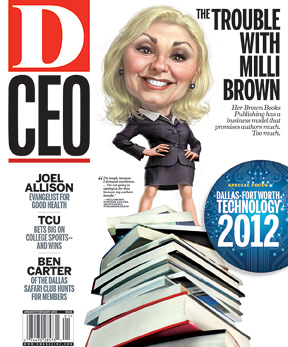If Max Drucker, CEO of Social Intelligence, has his way, human resources directors in companies nationwide will soon be adding to their checklist of credit reports, criminal background checks, and the like. Get ready for the social media background check, a service offered by the Santa Barbara, Calif.-based startup that digs into the online lives of job applicants. This summer, Social Intelligence became the first company providing such services to be given Federal Trade Commission approval, after determining that the firm is fully compliant with the Fair Credit Reporting Act.
If you are one of those companies that already performs social networking research on prospective employees, you are far from alone. As social media has soared in popularity—Facebook boasts more than 800 million users worldwide and roughly two-thirds of online Americans have at least one social media profile—the number of employers who admit to surfing the Internet as part of their candidate screening has climbed steadily as well.
The online reputation management firm Reppler conducted a survey in September 2011 that revealed that a stunning 91 percent of recruiters screen applicants using social networks. The most popular sites for exploration are, not surprisingly, those most frequented by social media users: Facebook (used for screening by 76 percent of the respondents), Twitter (53 percent), and the more business-oriented LinkedIn (48 percent).
Nearly 70 percent of the recruiters responded that they had rejected a candidate because of what they viewed on a social networking site. The reasons range from the predictable posting of inappropriate photos or comments (cited by 11 percent of the recruiters) to online depictions of alcohol or drug use (9 percent and 10 percent, respectively) to even more troubling workplace-related red flags. These include posting negative comments about a previous employer (a factor relied on by 11 percent of the recruiters), lying about their qualifications (at 13 percent, the most widely-cited reason), and sharing confidential information from a former employer (7 percent).
In one of the most difficult economic climates in years, being tripped up by one’s social networking profile is a hurdle job applicants cannot afford to overlook. As Reppler founder Vlad Gorelik puts it, “With hiring managers relying heavily on social networks to screen potential candidates, it is more important than ever for job seekers to maintain a clean and professional online image.”
So, if most recruiters acknowledge the widespread use of peeking into an applicant’s online life, what is so special about having a third party like Social Intelligence doing the digging? First of all, employers with a “DIY” approach risk running afoul of federal and state anti-discrimination laws and invasion of privacy claims. Companies cannot make hiring decisions based on protected factors such as race, religion, national origin, or gender under Title VII of the Civil Rights Act of 1964. Let’s say an HR manager runs an online background check on an applicant, and runs across her Facebook page with a status update announcing her pregnancy, or a page detailing her upcoming baby shower. If the candidate is rejected, she may have a claim of bias based on her pregnancy. As Joe Bontke, outreach manager for the Houston office of the Equal Employment Opportunity Commission, recently told The New York Times, “Things that you can’t ask in an interview are the same things you can’t research.”
Enter third party vendors like Social Intelligence. Social Intelligence scours the Internet for whatever a prospective employee may have said or done online for the past seven years. The firm then compiles a report to the employer that includes positive search results like charitable work or professional accolades, as well as negative information that fits within the employer’s predefined criteria. This can include sexually explicit photos, text messages, or videos, as well as online references to drug use, racist comments, identifiable violent activity, or flagrant displays of weapons or explosives.
Beyond Facebook and Twitter
Although incriminating photos doom many applicants’ chances (like a woman posting nude photos of herself who was not hired by the hospital she applied to, or a man whose Facebook page depicting him in a greenhouse surrounded by marijuana plants), less than a third of the data dredged up by Social Intelligence actually comes from the biggest social networking platforms like Facebook or Twitter. The majority of the information used in evaluating a candidate results from comprehensive online scans that locate Google searches a person has run, comments on blogs, user groups the candidate has joined, and posts on everything from smaller social networking sites to Craigslist.
Belonging to or “liking” an online group like “This Is America, I Shouldn’t Have to Press 1 for English,” for example, is not likely to win over a future employer keen on maintaining a tolerant workplace. And with the growing number of photo- and video-gathering sites that use facial recognition software, a prospective employer can find you in a rioting crowd the same way the police can.
With a third-party vendor like Social Intelligence, job candidates must first fill out a consent form giving permission to perform the social media background check. As a consumer reporting agency in compliance with the Fair Credit Reporting Act, Social Intelligence maintains its reports for seven years, but data is not reused and information in an applicant’s file gets updated when photos are removed from social networking sites. Future employers running searches through Social Intelligence do not get access to any removed content. In addition, job candidates are notified of the adverse information found.
According to Drucker, Social Intelligence attempts to help employers engage in fair hiring practices while still protecting a job applicant’s privacy. A typical report from the firm removes references to a candidate’s religion, marital status, and other federally protected information.
Barbara O’Neal, the owner of O’Neal Consulting in Dallas, has done HR consulting and recruiting for North Texas businesses like ACS, Tuesday Morning, and Texas Capital Bank, as well as nonprofits like the Boys and Girls Club of Dallas and the Dallas Holocaust Museum. She readily acknowledges the prevalence of online screening, noting that the more business-oriented LinkedIn “gives us a way to corroborate information on someone’s résumé, and to see the applicant’s other business connections.” She notes that recruiters and third-party vendors often do a much better job of providing diverse candidates because “we’re very conscious of not screening out protected classes. Every mechanism we have is to the benefit of the candidate and the company, because we have a much better chance of finding the right fit for the right position.”
With high unemployment, job seekers need to be more aware than ever of the consequences of posting too much information on the web. And for employers, avoiding inadvertent discrimination or even the appearance of discriminatory hiring translates to doing online screening the smart way. If your company, like most, does its own online research, adopt internal procedures for use of the Internet in making hiring decisions. Make sure that the HR department avoids delving into protected information like race or gender, and be aware of particular state anti-discrimination laws in those jurisdictions where you have employees. California, for example, bans discrimination on the basis of gender identity.
If your company opts for a third-party vendor, get some legal assurances in advance. Is the service compliant with the Fair Credit Reporting Act? Does it have measures to determine the accuracy of the information collected and provided to the employer (for example, differentiating among applicants with common names)? Is the vendor limiting itself to publicly-viewable content from sites like Facebook, or is it attempting to access privacy-restricted information?
There is nothing wrong with researching job candidates online, as long as it is done properly. The wealth of useful data on the Internet includes information that applicants have intentionally posted for employers to consider, such as a LinkedIn profile. A proper online background screening process can impact your bottom line, from minimizing the risk of litigation to recruiting better, higher-performing employees.






